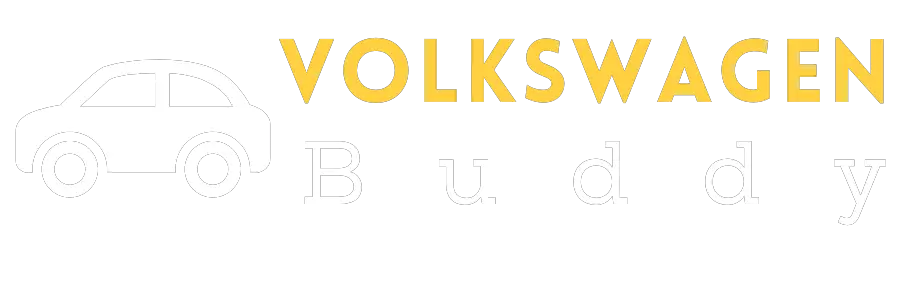Volkswagen Jetta Engine Codes [Revealed]
Are you ready to unlock the hidden language of your Volkswagen Jetta’s power Delve into the fascinating world of
where a unique alphanumeric sequence holds the key to understanding your car’s heart and soul. As a skilled and highly qualified Volkswagen technician
I’m here to guide you through the intricate web of engine codes
revealing the secrets that define your Jetta’s performance. Let’s embark on a journey to decode the language of power
efficiency
and innovation that lies beneath the hood of your beloved Volkswagen Jetta.
So Volkswagen Jetta Engine Codes
Volkswagen Jetta Engine Codes
The Volkswagen Jetta has a variety of engine codes that can be used to diagnose problems. These codes are displayed on the car’s dashboard in the form of a series of numbers and letters. Each code represents a specific problem with the engine.
Here are some of the most common Volkswagen Jetta engine codes:
P0300:
Random misfire
P0301:
Cylinder 1 misfire
P0302:
Cylinder 2 misfire
P0303:
Cylinder 3 misfire
P0304:
Cylinder 4 misfire
If you see any of these codes on your dashboard, it’s important to take your car to a qualified Volkswagen mechanic for diagnosis and repair.
Volkswagen Jetta Engine Codes
The Volkswagen Jetta is a popular compact car that has been in production since 1979. The Jetta is available with a variety of engines, including gasoline, diesel, and hybrid engines. Each engine has its own unique set of engine codes that can be used to identify the engine and its specifications.
Engine Codes
The Volkswagen Jetta engine codes are located on a sticker on the engine block. The sticker typically contains the following information:
Engine code
Engine displacement
Engine type
Engine emissions rating
Engine build date
The engine code is a five-digit alphanumeric code that uniquely identifies the engine. The first three digits of the code indicate the engine displacement in liters, and the last two digits indicate the engine type. For example, the engine code 2.0L TDI indicates a 2.0-liter turbocharged diesel engine.
The engine displacement is the total volume of air and fuel that the engine can intake in one cycle. The engine type refers to the type of fuel that the engine uses. Gasoline engines are typically identified by the letter B, diesel engines are identified by the letter D, and hybrid engines are identified by the letter H.
The engine emissions rating indicates the level of emissions that the engine produces. The emissions rating is based on the amount of pollutants that the engine emits, such as carbon monoxide, hydrocarbons, and nitrogen oxides.
The engine build date is the date that the engine was manufactured. The engine build date is typically stamped on the engine block or on a sticker near the engine.
How to Use Engine Codes
The Volkswagen Jetta engine codes can be used to identify the engine and its specifications. This information can be useful for troubleshooting engine problems, finding replacement parts, and determining the value of the car.
To use the engine codes, you will need to locate the sticker on the engine block. The sticker typically contains the following information:
Engine code
Engine displacement
Engine type
Engine emissions rating
Engine build date
Once you have located the engine codes, you can use them to identify the engine and its specifications. The engine code is a five-digit alphanumeric code that uniquely identifies the engine. The first three digits of the code indicate the engine displacement in liters, and the last two digits indicate the engine type. For example, the engine code 2.0L TDI indicates a 2.0-liter turbocharged diesel engine.
The engine displacement is the total volume of air and fuel that the engine can intake in one cycle. The engine type refers to the type of fuel that the engine uses. Gasoline engines are typically identified by the letter B, diesel engines are identified by the letter D, and hybrid engines are identified by the letter H.
The engine emissions rating indicates the level of emissions that the engine produces. The emissions rating is based on the amount of pollutants that the engine emits, such as carbon monoxide, hydrocarbons, and nitrogen oxides.
The engine build date is the date that the engine was manufactured. The engine build date is typically stamped on the engine block or on a sticker near the engine.
Also Read: Volkswagen Tdi Engine Codes
FAQs about Volkswagen Jetta Engine Codes
What do Volkswagen Jetta engine codes mean?
Volkswagen Jetta engine codes are a series of letters and numbers that are used to identify specific problems with the engine. The codes are usually displayed on the car’s dashboard or in the owner’s manual.
How do I find my Volkswagen Jetta engine code?
To find your Volkswagen Jetta engine code, you will need to turn on the ignition and then turn off the engine. Next, turn the key to the on position without starting the engine. The engine codes will be displayed on the dashboard or in the instrument cluster.
What do I do if I get a Volkswagen Jetta engine code?
If you get a Volkswagen Jetta engine code, you should take your car to a qualified Volkswagen dealer or repair shop. The technician will be able to diagnose the problem and make the necessary repairs.
What are some common Volkswagen Jetta engine codes?
Some common Volkswagen Jetta engine codes include:
P0011: Camshaft Position Sensor A Circuit Range/Performance
P0014: Camshaft Position Sensor B Circuit Range/Performance
P0300: Random Misfire
P0301: Cylinder 1 Misfire
P0302: Cylinder 2 Misfire
How can I prevent Volkswagen Jetta engine codes?
You can help prevent Volkswagen Jetta engine codes by following these tips:
Keep your car well-maintained by following the recommended maintenance schedule.
Use high-quality gasoline.
Avoid driving your car in extreme conditions.
Inspect your car regularly for signs of wear and tear.

![2010 Volkswagen Gti Metallic Rattle On Take Off [With Solution]](https://volkswagenbuddy.com/wp-content/uploads/2024/05/2010-volkswagen-gti-metallic-rattle-on-take-off-with-solution_4521-768x531.jpg)
![How To Turn Volkswagen Tiguan Screen Off [Easy Troubleshooting]](https://volkswagenbuddy.com/wp-content/uploads/2024/05/how-to-turn-volkswagen-tiguan-screen-off-easy-troubleshooting_4549-768x531.jpg)


![Volkswagen Beetle Starts Then Shuts Off [Reasons & Fixes]](https://volkswagenbuddy.com/wp-content/uploads/2024/05/volkswagen-beetle-starts-then-shuts-off-reasons-fixes_4462-768x531.jpg)
